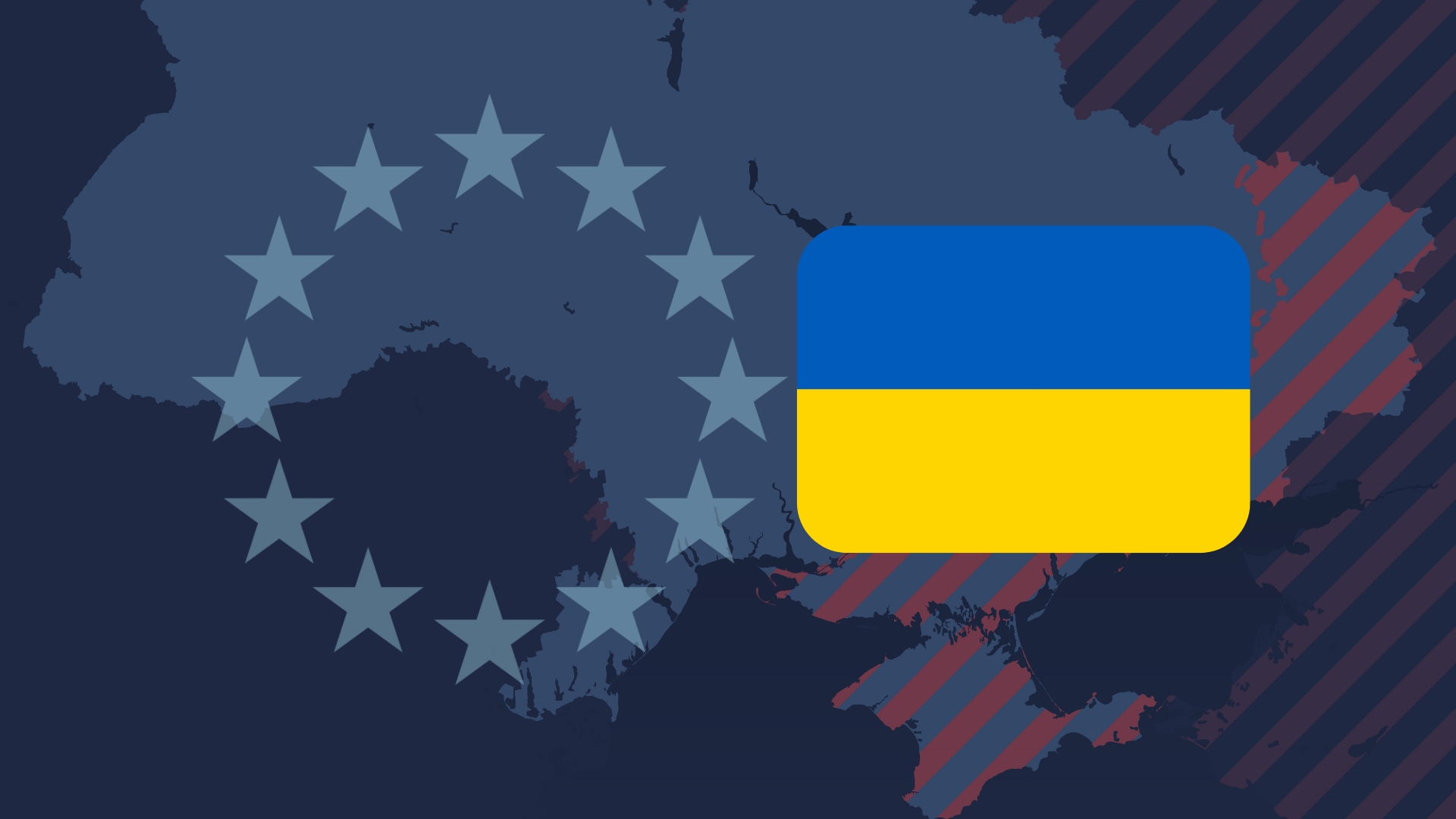Discussions on membership continue despite an ongoing war with an active frontline, potentially soon becoming Europe’s newest prolonged standoff. Even after peace is established, Ukraine and the EU would face a long and challenging road.

The European Union, born from the post-war need to ensure European countries no longer wage wars against each other, is now driven by the experience of war in its latest expansion wave.
Among the countries between Russia and the EU, Ukraine is the largest and most populous. For over two decades, Ukraine’s integration into the EU has been a topic of discussion. Romano Prodi, who spearheaded the EU’s major eastward expansion in 2004, proposed Ukraine’s integration into the EU as early as 2003. This idea was sidelined as the Euro crisis emerged, with the EU focusing on internal challenges and deferring further expansion plans indefinitely.
Internal debate about the future and EU orientation has also shaped Ukrainian politics. In 2012, Ukraine drafted an association agreement with the EU, aiming to align the country with the technical and commercial standards required for EU membership while providing priority access to EU markets, research, and financial support. The freezing of this agreement under pro-Russian President Viktor Yanukovych led to the chain of events starting with the 2014 Euromaidan revolution, the annexation of Crimea, and the onset of the war in Eastern Ukraine.
Long after Euromaidan, EU candidate status seemed a distant dream for Ukraine, mired in prolonged conflict and far from meeting the EU’s minimum standards, as evidenced by widespread corruption. [1] The candidate status granted in summer 2022 was an exceptional show of solidarity for a country under brutal attack.
However, obtaining candidate status has not solved practical challenges on the path to membership. Victory over Russia and the restoration of territorial integrity would smooth Ukraine’s path towards EU membership. If EU membership discussions progress amid the ongoing war, it would fundamentally change the EU’s nature – turning it into an alliance facing open great power war on its border.
The conditionality of the EU membership has been a window to promote the rule of law and combat corruption, key political goals of President Zelensky already before he became a symbol of resistance and Ukrainian survival.[2] These processes have continued during the war, as identifying as European has become increasingly important for Ukraine and its people.
In January, 73% of Ukrainians supported political reforms required for EU membership. Notably, the long-standing political divide in Ukraine between pro-Russian factions successful in Eastern Ukraine and pro-European parties dominant in Western Ukraine, as well as language issues, have practically disappeared.
Ukraine’s membership application marks a new phase where EU expansion is considered security policy first. The expansion’s significance is primarily military, with geopolitical symbolic value, even though Ukraine’s economic convergence with Europe was one of the root causes of the crisis..[3]
The potential impacts of Ukraine’s membership on the EU’s internal market should not be overlooked. Ukraine, the world’s third-largest grain exporter, would significantly benefit from the EU’s agricultural support policies and easily fill the EU markets.[4] Agricultural export and import have already caused friction with Poland, and the EU’s influential agricultural sector’s reaction to change could be severe.
Estimates suggest that the cost of reconstruction in the first year of the war could reach nearly 400 billion euros, with the EU already committed to financing and lending a significant portion.[5] Ukraine has become economically dependent on its supporting countries, and opening its markets to EU trade powers during reconstruction could lead to rapid economic integration not happening on Ukraine’s terms. This would also turn many current net recipients into net contributors in the EU.[6]
With approximately 42 million citizens, populous Ukraine would become the EU’s fifth-largest member state, wielding significant political influence. As an EU member, Ukraine would become one of the largest influencers within the EU.
Discussions on membership continue despite an ongoing war with an active frontline, potentially soon becoming Europe’s newest prolonged standoff. Even after peace is established, Ukraine and the EU would face a long and challenging road. This journey will measure not only solidarity but also the real willingness and ability of EU countries to integrate new members into the community, fulfilling wartime promises in practice, and Ukraine’s capacity to take the necessary steps towards EU membership.
SAMUEL TAMMEKANN

[1] André Sapir. 2022. “Ukraine and the EU: Enlargement at a New Crossroads.” Intereconomics: Review of European Economic Policy. 57(4): 213-217.
[2] Irakli Ventura and Sirbiladze Elena. 2023. “The EU’s Eastern Enlargement and Differentiated Democracy Support.” Carnegie Europe. 11.9.2023.
[3] Stefan Lehne. 2023. “A Reluctant Magnet: Navigating the EU’s Absorption Capacity.” Carnegie Europe. 21.9.2023
[4] Hannes Lorenzen and Hans Wetzels. 2023. “Ukraine Joining the EU – An Elephant in the Room.” Agricultural and Rural Convention. 19.6.2023.
[5] World Bank Group. 2023. “Updated Ukraine Recovery and Reconstruction Needs Assessment.” 2023/ECA/82. World Bank, 23.3.2023.
[6] Carlo Bastasin. 2023. “Want Ukraine in the EU? You’ll Have to Reform the EU, Too.” Brookings. July 2023.
Active frontlines: Repelling Russia’s invasion is Ukraine’s top priority, taking precedence over everything else. The duration and outcome of the war will have an exceptionally decisive impact on the future of relations between Ukraine, Russia, and the EU.
Economic costs: Ukraine is the poorest country in Europe. Under current rules, it would be entitled to funds transfers that could cover up to 40% of the EU’s current budget. On the other hand, EU countries have already committed to substantial reconstruction aid.
Institutions: Despite significant reforms to combat corruption, it remains a major problem in Ukrainian politics and economy. Some EU member states are concerned that this could make governance of the union even more difficult.
Security: Ukraine’s accession to the EU could strengthen the Union’s position as a geopolitical alliance and counterforce to Russia. EU membership would be a logical culmination of Ukraine’s long and difficult journey away from Russia’s sphere of influence.
Economic development: The EU-Ukraine Association Agreement has already brought significant economic benefits to Ukraine, and full membership would open access to the EU’s internal market.
Rule of law development: There is strong support for EU membership in Ukraine, and EU support and demands for democratic reforms would help Ukraine commit to the path of rule of law development and strengthen civil society.